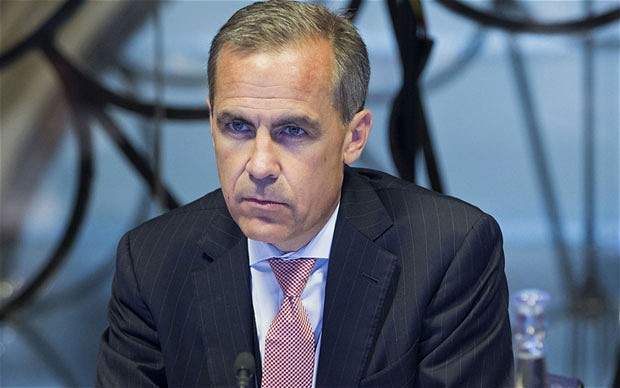
The Bank of England governor might have sent mixed signals on rate rises, but the global economic forecast is so harsh that we can’t really blame him, writes Alec Marsh
Being a central banker is a bit like trying to drive along the motorway — but in reverse, with only your rear view mirror to guide you.
Forecasts as economists will tell you are constantly wrong — or rather, they’re constantly being updated to be slightly less or more wrong than they used to be.
Norman Lamont, when he was chancellor, was famously scathing about forecasts, preferring to base his decisions on actual data, which was by necessity historic. (Mind you, historic data often gets updated too.)
Similarly, the Bank of England governor Mark Carney and his monetary policy committee, the lucky individuals who get to set interest rates in the UK, face a horrendous mismatch of mixed economic signals.
On the one hand, the thing that they’re meant to be fundamentally targeted on — inflation — appears to be on trend to return to more comfortable territory at around 2 per cent, having fallen again month-on-month to 2.5 per cent. So one might think that the current monetary medicine is working and, it’s worth pointing out that sterling is once again buoyant after its post EU-referendum lows.
But against the positive inflation news, wage inflation is picking up — rising higher than inflation to 2.8 per cent, and unemployment is at just 4 .2 per cent, the lowest since 1975. We also have record employment at about 33 million.
Against this, however, it’s worth pointing out that we have a record population in this country at over 65 million and an ageing population at that so a record number of people in work should be expected. But then again we also have concerns about underemployment.
The good news offsetting this last point is that there are finally some signs that productivity growth, an area along the concern of UK plc watchers, is improving, but not by a lot. In the last two quarters of 2018 it rose by 0.9 per cent and 0.8 per cent, its fastest since the financial crisis. But there’s still quite a long way to go until UK workers catch up with their counterparts in France or Germany.
Lastly there is the forecast for the overall economy to consider: the IMF upgraded its forecast this week by 0.1 per cent to 1.6 per cent for the UK in 2018, placing Britain ahead of Italy and Japan in the growth stakes. With a nation apparently gripped by Brexit uncertainty that doesn’t look so shabby. But it’s still far from attractive to the growth rates in the US or across the Channel.
So perhaps it’s no surprise that, last night, Mr Carney popped up again, this time to reduce market expectations of an interest rates rise in May. Don’t count on it, he was saying, which was precisely what the markets had been doing. Citing ‘mixed data’ and ‘soft’ retail sales he wisely shifted the language from May to something else: ‘Prepare for a few interest rate rises over the next few years,’ he declared.
With the mixed signals coming out of the economy its hard not to forgive Carney’s manoeuvring. On the contrary it’s spot on. At times like this central bankers need eyes in the backs of their heads.
Alec Marsh is editor of Spear’s






